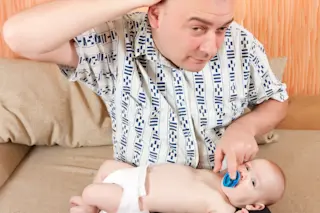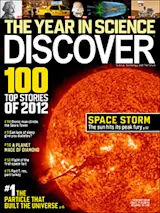As men age, they are more likely to pass genetic mutations on to their children. By introducing change, older men's genes appear to be a major driving force in human evolution, says Kári Stefánsson, founder of the company decode Genetics and author of a study published in August. But the mutations from a growing number of older fathers may also account for a portion of the recent increase in autism.
Because the cells that give rise to sperm divide frequently—about 23 times a year—they are much more likely to accumulate genetic copying errors than the female precursor cells, oocytes, which divide only twice before becoming eggs. The mistakes add up over a lifetime, so that the older the father, the more mutations he has in his sperm. Stefánsson and his colleagues estimate that a 70-year-old dad passes on eight times as many mutations as does a 20-year-old.
To grasp the ...















